The PQM-703 Electric Power Quality Analyzer is a high-tech product that enables universal measurement, analysis and recording of 50/60 Hz power grid parameters and power quality in accordance with European standard EN 50160. The analyzer fully complies with the requirements of standard EN 61000-4-30: 2015 class A.
The analyzer is equipped with five voltage measurement inputs with the leads terminated with banana plugs, designated as L1, L2, L3, N, and PE. The voltage range measured by the four measurement channels is up to ± 1500 V (analyzers have two sub-ranges of voltage). This range can be increased by using the additional external voltage transducers.
The current is measured by four current inputs inserted into the short cables terminated with clamp plugs. The flexible clamps F-1 (A), F-2 (A), F-3 (A) with the nominal range of 3000 A can be connected to them (differing only by the diameter of the coil), the clamps F-1A6, F-2A6, F-3A6 with 6000 A nominal range and rigid clamps C-4 (1000 A AC range), C-5 (A) (1000 A AC / DC range), C -6 (A) (10 A AC range) and C-7 (A) (100 A AC range). In addition, in case of currents, the nominal range can be changed by means of additional transformers, for example using the 1000: 5 transformer with the C-6 (A) clamp the current can be measured up to 1000 A.
The device has a built-in 8 GB memory card. To ensure the ability to read saved data quickly, the analyzer is equipped with a built-in storage reader that makes it easy to read the data with a speed of several MB / s. The data can be read through the available communication links: USB, radio transmission with the OR-1 radio receiver and GSM.
The GSM modem (which works with the UMTS standard) is built into the device with the antenna. This allows virtually unlimited access to the analyzer from anywhere in the world where there is GSM coverage. On the left side of the case there is a slot for the SIM card required for transmission via GSM.
The analyzers have the built-in GPS receiver with antenna, so without any additional accessories they meet the requirement of full compliance with EN 61000-4-30 class A. The GPS receiver provides synchronization with the universal UTC time and allows to achieve measurement time precision down to tens of nanoseconds. In the case of GPS receivers, satellite reception is possible in the open field, so synchronization with a built-in antenna is only possible outdoors. If the user uses the analyzer inside the building, then to ensure the availability of the GPS signal it is necessary to connect an external GPS antenna (with the cable length of 10 m) to the analyzer and place the antenna outside the building. The external antenna is an additional accessory.
The registered parameters are divided into groups that can be included or excluded from the registry independently, allowing the rational use of space on the memory card. The unregistered parameters do not take up space, therefore the recording time of the other parameters is considerably prolonged.
The analyzer has an internal power supply with a wide input voltage range 100… 690 V AC (140… 690 V DC), with independent banana plugs.
An important feature is its ability to work in unfavorable weather conditions, the analyzer can be installed directly on power poles. It ensures IP65 class tightness and the working temperature range is from -20 ° C to + 55 ° C.
The internal lithium-ion battery ensures uninterrupted operation in the event of a loss of supply voltage.
The user interface includes a color LCD screen with a resolution of 320×240 pixels and 3.5 inches, the keyboard has 4 buttons.
The element that shows all the possibilities of the device is the PC software “Sonel Analysis”.
Communication with the PC is possible through:
USB connection that guarantees a transmission speed of up to 921.6 kbit / s; the mode to read the data from the memory card with a speed of several MB / s is available,
433 MHz radio connection with the OR-1 receiver, and the speed of 57.6 kbit / s (range limited to about 5 m),
GSM connection via the Internet.
In order to use the wireless connection mode, it is necessary to connect the OR-1 radio receiver to the USB port of the computer. Communication in this mode is slower so it is recommended for the visualization of current data from the networks measured by the analyzer, the configuration and the control of the analyzer. It is not recommended to read a lot of data stored on the memory card via wireless connection due to slow data transmission.
Only logged in customers who have purchased this product may leave a review.

 Español
Español Português
Português Français
Français
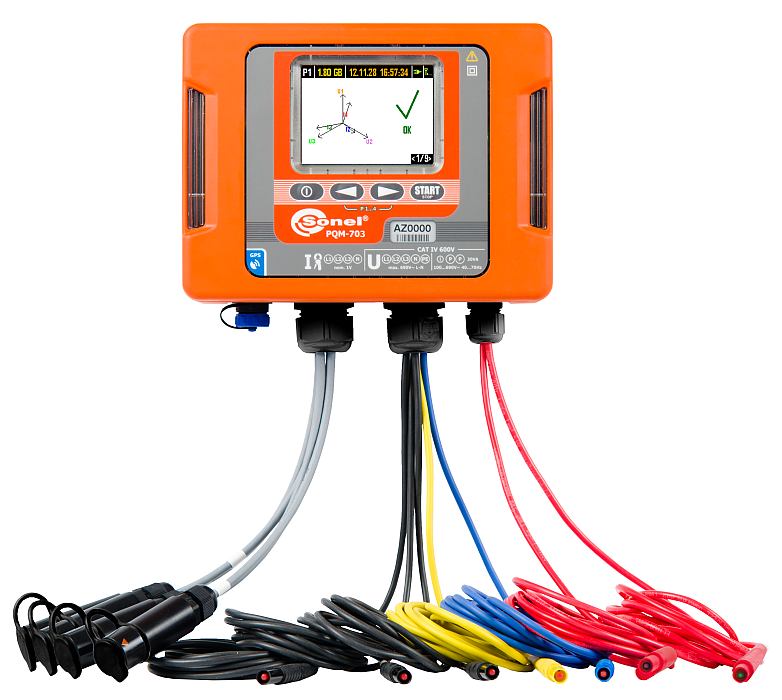
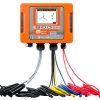
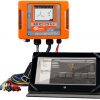
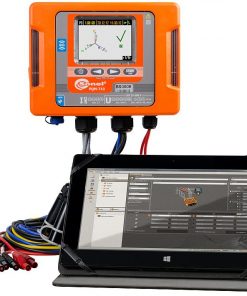
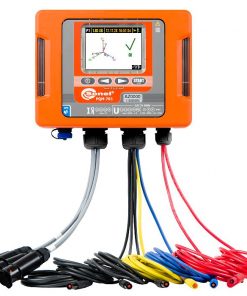
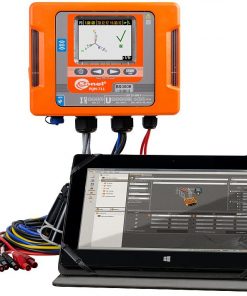
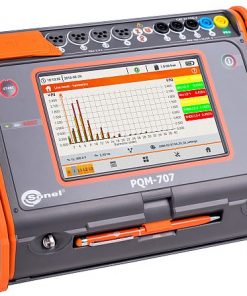
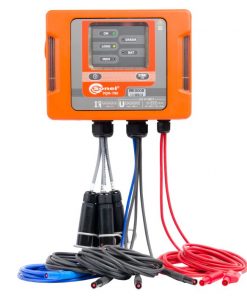
Reviews
There are no reviews yet.